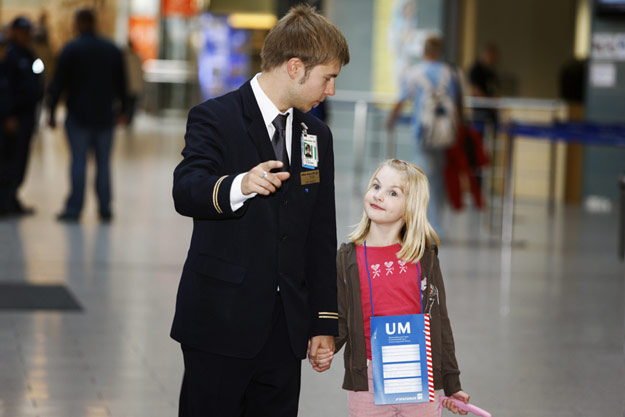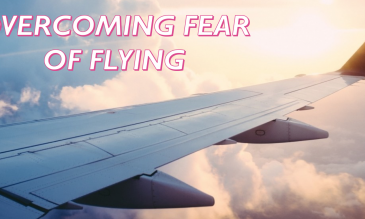Having your little one travel without you for the first time is akin to that day you took them to their first day of school. They may be excited about going to see Grandma and Grandpa during the holiday season, but saying goodbye is never easy and you may be worried about who is going to make sure they behave and look after them during their travel experience!
These days most airlines have a special service which will allow children from 5-14 years old to travel unaccompanied by an adult. This service includes an adult overseeing the child at all times, including refuelling and change-overs, through to delivery to the gate to the person who is meeting your child. The service is usually around an extra $100-150 but does not include any frequent flyer miles or airline memberships.
At what age is it ok?
That is entirely the parents call and much will depend on the child’s confidence and maturity. There are many things you need to consider before letting your little one board an aircraft alone. Here are some tips to help figure it out:
- Are they happy to play or sit alone for a few hours at a time?
- Do they adjust easily to different surroundings and situations?
- Do they have the confidence to ask for help should they need it?
If the answer is yes to these questions, it seems that your little one is ready to take on the challenge. But you may want to consider the following as well before you make that decision:
- Have they ever flown before, with or without you?
- Have they flown with you before, but not entirely comfortable?
- Are they capable of keeping their belongings with them and following directions?
Separation anxiety can occur at any age. It’s all about whether or not they can cope around strangers without a parent for a long period of time. Younger children in particular can suffer from separation anxiety and one of the best ways to deal with this is to expose the child to some less challenging situations first; an over-night play date, a group camp, or even time alone with a relation. All of these things will help prepare children for their first solo flight.
Booking the flight
The best option for a parent to consider is to take the most direct route. A direct flight may have a re-fuelling stop without the need to change planes, making the experience less stressful for the child. Many airlines will only accept minors on non-stop routes. The simpler you make it the better for your child. You will need to book an unaccompanied flight for minors through their reservations centre, as most airlines will not allow you to book these online.
Should you book with an airline who does allow minors to change aircraft for a connecting flight, ensure that the airline has in place a proper process for accompanying, supervising, and making sure that your child will get safely through to gates for the next flight.
Gathering information
When the tickets are issued, check that all information – including the child’s name, dates, times, and cities – are correct. The person collecting your child needs this information as well as the airline, and they will be required to produce a government issued ID at the gate when meeting your child. It’s a good idea to make sure your child has some kind of identification on their person like a named itinerary or your business card with their name written on the back. Have them take on board a list with contact numbers of people to contact should there be an emergency. This needs to include any people meeting them at the other side.
Airplane etiquette
The chances are that your child is going to play it safe and spend the entire journey quietly keeping to themselves. However, it’s also a good idea to go over some expected behaviour and safety issues. Things like keeping your seatbelt on during take-off and landing, how to get a flight attendants attention, and how they need to keep it quiet should they strike up a conversation with a nearby passenger
Have an adult meet them
Make sure the person who is collecting the child confirms all the relevant information including arrival time, ticket information, flight carrier etc., and that they are able to communicate with you or your child should things go wrong e.g., mobile phone. The airline will provide someone to escort your child and release them to your nominated person.
Keep your child in the loop
It is important that your child is told what they can expect to happen during their flight. This includes things like which area of the plane will they sit, that they need to read and listen to the safety instructions, and any other general routines that may occur. This is especially important to infrequent or first time flyers. It may also be useful for them to have a photo of who will be collecting them.
Keep them safe
Although your child will be well watched by the crew, it would be prudent to give some strong guidelines as to what is appropriate and what is inappropriate behaviour towards them from another adult. They need to be able to identify and feel confident enough to report any behaviour that makes them feel uncomfortable.
Permission to travel
If your child is travelling internationally, they will require a notarized letter which gives them consent from the parents to travel. Check with the airline which documents are required when you book the tickets.
Stick around
Plan to stay at the airport for a while after take-off. Weather or mechanical faults can bring an aircraft back to the gate, so you will want to be close if any issues arise.

 En
En Es
Es Fr
Fr











